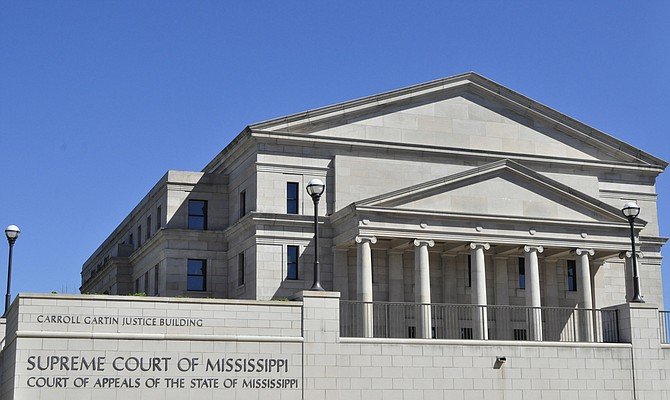Court hears marijuana arguments
Oral arguments in Madison Mayor Mary Hawkins-Butler’s challenge to Initiative 65 began at the state Supreme Court on Wednesday.
Initiative 65 is the constitutional amendment passed in November to allow for medical marijuana in the state.
Hawkins-Butler’s arguments centered on the plain language of the state Constitution and a reduced number of Congressional districts, not the wisdom of legalizing medical marijuana itself, Hawkins-Butler has asserted since late-October.
The state Supreme Court agreed in December to hear the appeal filed by Hawkins-Butler and the city of Madison in October before Initiative 65 was passed overwhelmingly by voters in November.
Hawkins-Butler says Initiative 65 was put before voters unconstitutionally.
Her appeal technically challenges the sufficiency of the petition itself, not the marijuana language.
“Initiative 65 gives marijuana providers greater rights than any other lawful business,” the mayor has said. “Such a significant change must be lawfully adopted.”
The mayor has said she is not opposed to a well-regulated pure medical marijuana program for the truly suffering.
The mayor is arguing in the appeal that the Mississippi Constitution itself provides that a petition by voters proposing an amendment to the constitution must have no more than 20 percent of its required signatures from each of the state’s congressional districts.
The state had five congressional districts some 20-plus years ago with the initiative and referendum option was passed.
The mayor’s appeal argues that because the state Constitution itself contains the 20-percent rule, it is a mathematical impossibility to have the required number of signatures as 20 percent times four Congressional districts equals 80, not 100.
The Secretary of State argues in response that 100 percent can be achieved because the meaning and intent behind the law is to use the former five districts as they existed before 2000.
Hawkins-Butler says amending the constitution is a solemn process and the solution is for the Legislature to amend Section 273(3) given the loss of a congressional district.
She insists the sick and dying people of Mississippi deserve a controlled, well-regulated program overseen by universities, doctors, and pharmacists — which is why she opposes Initiative 65.
“We are not against a well-regulated medical marijuana program for the suffering,” Hawkins-Butler told the Journal. “We have grave concerns about what Initiative 65 contains, and more importantly to our suit, how it was passed.”
Furthermore, the mayor argues, it prevents cities from regulating who can grow or sell medical marijuana and where.
Under the new law, pot shops and other dispensaries cannot operate until they are licensed by the Mississippi Department of Health, which has not issued any regulations or licenses yet.
“If the amendment is struck down, then dispensaries can’t operate unless the Mississippi Legislature enacts legislation to replace the amendment,” Butler said.
Ridgeland’s Spencer Flatgard, a partner at the law firm Watkins & Eager PLLC and the original drafter of Initiative 65, is confident they will prevail.
He previously told the Journal he is grateful that Mississippi patients will have access to medical marijuana like most of the nation, and that Mississippi voters overwhelmingly supported Initiative 65 with 74 percent of the vote, carrying all 82 counties including Madison and the city of Madison.



